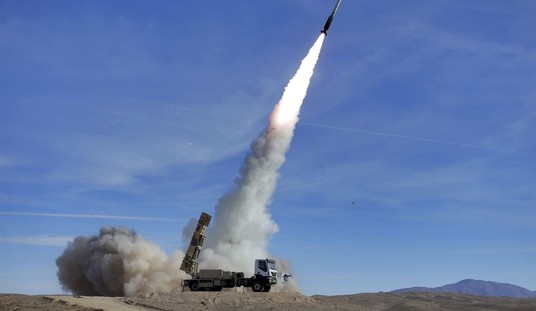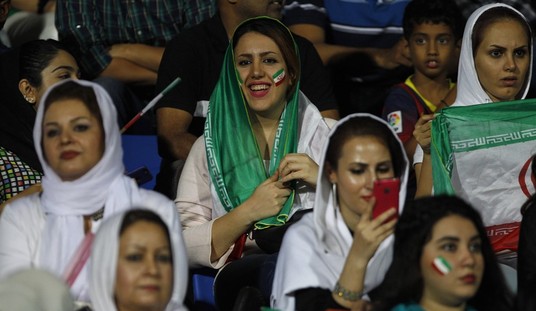WASHINGTON — Deputy Secretary of State John Sullivan told Congress last week that he believes there is a tie between terror groups’ financing and the slave trade that’s popped up in parts of Libya in which smugglers end up selling African migrants trying to make it to Europe.
“The reports of what’s happening in those camps where migrants, refugees are being abused, exploited and slave trade — shocking,” Sullivan told the House Foreign Affairs Committee during a hearing on counterterrorism efforts in Africa. “It’s happening in areas of Libya that are largely ungoverned, which is why we need — we’re working hard, along with the UN, for a political solution to the situation to get more control over those areas.”
“But in those ungoverned areas where ISIS and other terrorist organizations are able to operate, they make money by engaging in activities like that,” he added.
Pressed on which terrorist groups are involved in the slave trade, Sullivan replied, “I would have to get back to you for a specific answer. I can speculate.” He said difficulty in being able to access areas where the camps are located “presents a real problem for us in trying to directly address the problem.”
A CNN investigation released last month revealed slave markets in which human beings were being auctioned for a few hundred bucks. “If you look at most of the people here, if you check your bodies, you see the marks. They are beaten, mutilated,” said a Nigerian migrant who was sold several times by smugglers. The Libyan government has said it’s investigating, while putting some blame on the migrants’ countries of origin and their destination countries in Europe.
Last Friday, the Congressional Black Caucus met with Libyan Ambassador Wafa Bughaighis to discuss the slavery reports. “The international community must operate on the assumption that we don’t need further proof, what we need is to stop it,” said CBC Foreign Affairs and National Security Task Force co-chair Rep. Karen Bass (D-Calif.), also a member of the Foreign Affairs Committee, after the meeting. “The ambassador has agreed to provide us a detailed update on the specifics of the Libyan investigation and will continue to work with us transparently to respond to the migrant and refugee situation.”
At the Foreign Affairs hearing, Chairman Ed Royce (R-Calif.) noted that “we’ve crushed the caliphate and we defeated ISIS in Iraq and Syria,” only to face “a new phenomenon” of “chaos” with Libya, Boko Haram “taking over in parts of Africa,” al-Qaeda in the Islamic Maghreb and other terrorist organizations.
“What I’m worried about is that as we squeeze the balloon, they’re going to pop up somewhere else. And Africa, it seems to be the safe haven. They seek chaos. They seek ungoverned territories in safe havens,” Royce said. “And so, I see if we’re trying to look in the future, it’s actually happening now that Africa is going to be the spot. It’s going to be the hot spot.”
Sullivan said that the administration is “very focused on where those terrorist fighters that are leaving the caliphate — what’s left of it, and there isn’t much.”
“Certainly, Africa, parts of Africa, Libya, Northeastern Nigeria, elsewhere, seems to be a landing place. But we’re also seeing that in other areas in South Asia and in the Pacific as well, in the Philippines,” he said. “It’s a priority for us to not win the fight against the caliphate in Syria and Iraq but lose track of where all of those foreign fighters are going. Unfortunately, Libya has been an attractive place for them because of the ungoverned areas.”
Acting Deputy Undersecretary of Defense for Policy David Trachtenberg used a similar analogy as Royce in describing the terrorism problem: “If you squeeze the balloon in a certain place, you will narrow it and take the air out of that place. But it will also… expand in other areas. I think, to a certain degree, that’s what we’re seeing by the flow of foreign terrorist fighters from one area to another.”
Elements of a counterterrorism plan in Africa include “stability, good governance, health, economic development, humanitarian assistance,” Sullivan stressed.
Lawmakers pressed Trachtenberg on how many U.S. service members are currently in Africa. “I think the issue of the troops that we have, the actual numbers and their locations, is an issue that I prefer not to address in an open session,” he replied.
Rep. Brad Sherman (D-Calif.) questioned why the undersecretary treated the information as classified. “I’ll point out that the government of the United States has officially released the fact that there are 5 to 6,000 U.S. troops stationed in Africa,” he said.
“Congressman, the public number is between 5 and 6,000, that’s correct,” Trachtenberg said. “I think my earlier hesitation was based on the fact that I didn’t want to get into specific numbers vis-a-vis specific countries.”









Join the conversation as a VIP Member